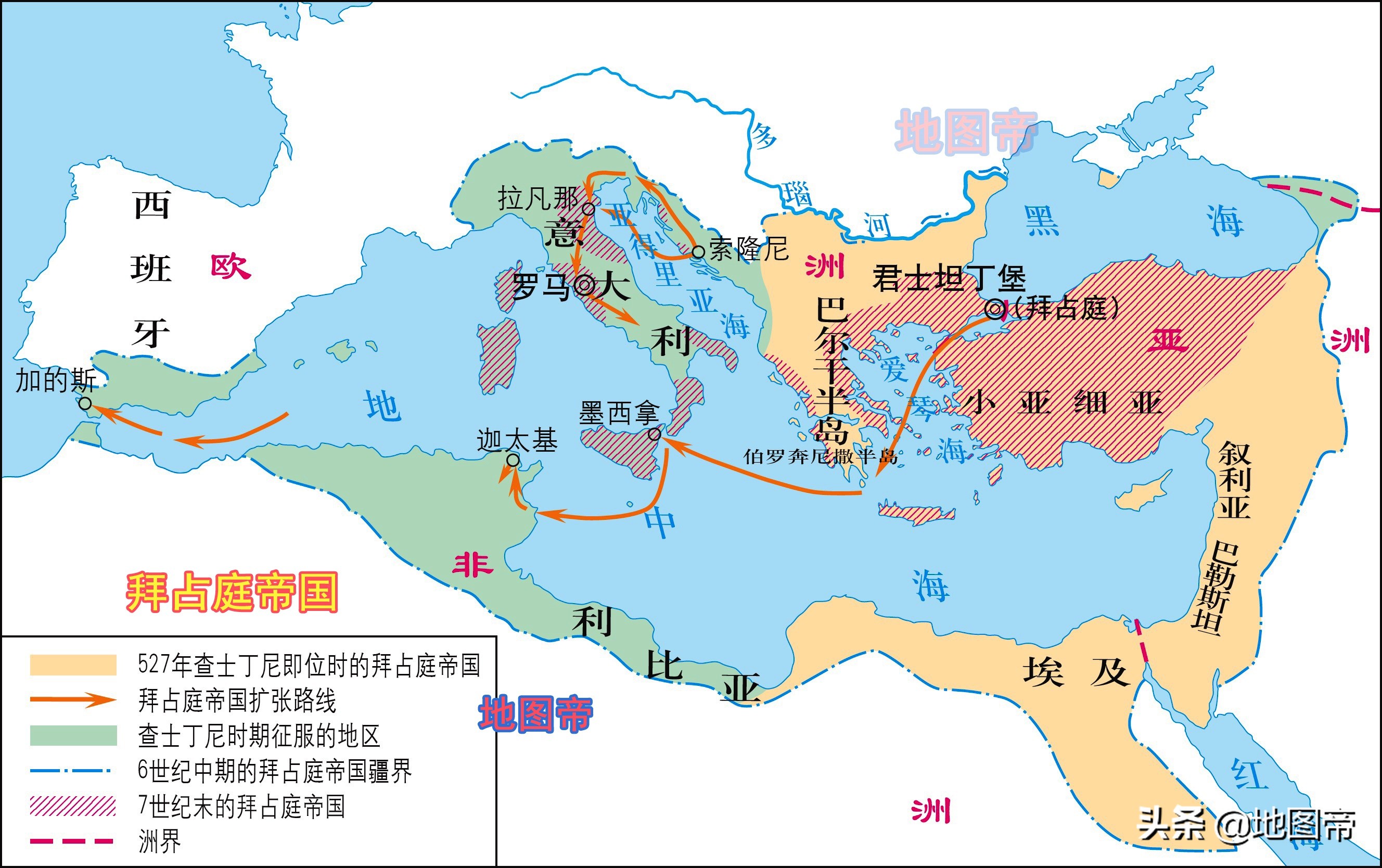In 395 AD, the vast Roman Empire was divided into two, and Constantinople and Rome became the capitals of the two empires, East and West. Since then, compared with the early Western Roman Empire, the Eastern Roman Empire has obviously been more long-lasting, and the latter has always regarded itself as orthodox, and its capital City Of constantinople has gradually evolved into a "holy city" in the minds of Europeans.

After the fall of the Western Roman Empire, the Germanic barbarians established countless kingdoms in Western Europe, and although they inherited the religious beliefs of Western Rome, their understanding of Christianity was obviously very different from that of the Romans. In the 11th century, the two great churches of the East and the West were officially broken, and since then the Greek Orthodox Church (Orthodox Church) has been independent of the Roman Church with Constantinople as the center.
By the fall of Constantinople in 1453, the Eastern Roman Empire had stood for more than a thousand years, and although the Eastern and Western churches were divided into each other, Constantinople was always a city worth yearning for all Europeans. However, such a holy city fell into the hands of the Islamic Turks, so the "reconquest" campaign against The Castle has not stopped since the day the Ottoman Empire renamed Constantinople istanbul. Unfortunately, before the arrival of modern civilization, the Machete of Ottoman Turkey could even be cut as far as Vienna, so the first thing Europeans should consider during this period was how to protect themselves.
If history continues only along the lines of Western Europe, then when the Industrial Revolution begins, Britain and France and other countries should have enough strength and opportunity to retake Constantinople, but it is a pity that Russia from Eastern Europe has forked from it. For a long time, Europeans did not regard Russia as a member of the West, and in their eyes this group of barbarians from the East was no different from the historical Huns and Mongols, but a fortuitous opportunity enabled the Russians to qualify for the West. On the eve of the fall of the Eastern Roman Empire, the last princess, Sophia, married Tsar Ivan III with a family coat of arms, which enabled the latter to present himself as the inheritor of the Roman Empire and the Greek Orthodox Church, and naturally gave the Russians the opportunity to intervene in European affairs.
Picture - A port in Istanbul
In the matter of "reconquesting" Constantinople, Russia showed no less enthusiasm than any other country in the West, but Europeans can never regard Russia as their own from the bottom of their hearts. In other words, it is necessary to "recover" the fortress from the Turks, but the question is who will "recover", and if the final result is controlled by the Russians, then simply do not "recover". From 1676 to 1878, there were ten Russo-Turkish wars between Russia and Turkey. Objectively speaking, the West did not have much opinion on the first six of them, after all, the war was far away on the shores of the Black Sea, which belonged to the "dog bite dog" type of barbarian fighting, but from the seventh time, the European powers could not sit still.
The front line between the Russian Empire and the Ottoman Turkish Empire showed a clear "north-to-south" movement. At first, when the Turks were strong, the Tatars entrenched in Crimea were supported by them to attack the Slavs, and millions of Russians were taken into captivity, so the early Wars between Russia and Turkey basically took place north of the Black Sea. As Russia's power grew, the flames of war gradually shifted southward, and by the end of the Sixth Russo-Turkish War, Russia had annexed Crimea and Georgia and had the potential to dominate the Black Sea. At this time, if the Russians continued to work hard, they could take Constantinople in one go, but the French did not allow it to continue to expand its gains.
In order to curb Tsarist expansion, Napoleon united all forces that could be united, including of course the Ottoman Turks of different faiths. After that, the divergence of interests between Europe and Russia became more and more serious, and finally in the Ninth Russo-Turkish War, the major powers such as Britain and France stood in the ranks of the Turks. The great war ended with millions of casualties on both sides, with the Russians suffering from the Crimea to heal their wounds, while Constantinople remained in the hands of the Turks. To this day, Turkey still weaves between Europe and Russia, and the name Constantinople has faded from the world's memory, and it is now called "Istanbul".